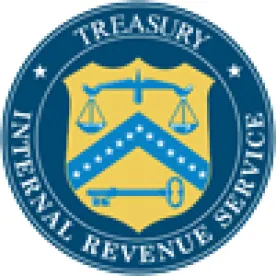Nonprofit organizations place a significant amount of importance on protecting their tax-exempt status. As a result, many nonprofit organizations avoid advocating or lobbying on behalf of their organizations and constituents out of fear of losing their tax-exempt status even though such advocacy and/or lobbying actually can help the organizations survive and fulfill their missions. This article focuses on those nonprofit organizations that are considered public charities and become exempt from federal income taxes pursuant to Section 501(c)(3) of the Internal Revenue Code ("IRC"). Although Section 501(c)(3) prohibits such organizations from supporting or backing a candidate for public office, it only prohibits them from having a "substantial part of [their] activities of which is carrying on propaganda, or otherwise attempting to, influence legislation . . . ." 26 U.S.C. § 501(c)(3) (emphasis added). Contrary to popular belief, this language and other parts of the IRC, as will be discussed below, actually allow nonprofit organizations to advocate and lobby, and can even provide the organizations more certainty with respect to their tax-exempt status while doing so.
The IRC only prohibits lobbying when it becomes a "substantial part" of an organization's activities. Admittedly, when this occurs is not clear – the IRC does not define "substantial" as it is used in this context nor does it offer any test as to when lobbying becomes "substantial." One court has looked at the percentage of time and effort an organization dedicated to lobbying and found less than five percent to be insubstantial. Seasongood v. Commissioner of Internal Revenue, 227 F.2d 907, 912 (6th Cir. 1955). Other courts have adopted a more fluid, yet subjective test that balances the lobbying activities in the context of the objectives and circumstances of the organization. See, e.g., Haswell v. U.S., 500 F.2d 1133, 1142 (Ct. Cl. 1974).
For more certainty, certain nonprofit organizations can elect for their lobbying activities to be measured under Section 501(h) of the IRC rather than be subject to the more ambiguous "substantial part" rule under Section 501(c)(3). By filing IRS Form 5768, a nonprofit organization elects to go under Section 501(h) and will not lose its tax-exempt status so long as its lobbying expenditures do not exceed the lobbying ceiling amount set forth in the IRC. By way of example, nonprofit organizations with tax-exempt expenditures of less than $500,000 annually can spend up to twenty percent of their expenditures on lobbying activities. 26 U.S.C. § 4911(c)(2). If the organization spends more than their allotted twenty percent, it will owe an excise tax on the amount by which it went over, but it is not until the organization spends more than thirty percent of its expenditures for multiple years that it is in danger of actually losing its tax-exempt status. See id. § 4911(a) & § 501(h). Lobbying expenditures are defined as expenditures for the purpose of attempting to influence legislation through either (A) "an attempt to affect the opinions of the general public or any segment thereof" (also known as grass roots expenditures) or (B) "communication with any member or employee of a legislative body, or with any government official or employee who may participate in the formulation of the legislation." 26 U.S.C. § 4911(d)(1).
The IRC and its regulations provide further instruction on how to calculate expenditure amounts and ceiling limits and more clarity around what is considered influencing legislation for those organizations that elect to go under Section 501(h). Filing under Section 501(h) may further help to ease annual reporting requirements in that all the organization must report are the relevant amounts of expenditures without an accompanying description of the activities, which may otherwise be required in the annual for other nonprofit organizations. Form 5768 is a one page form that is free to file with the IRS, and in most cases the right choice for nonprofit organizations interested in expending money towards lobbying activities or interested in clearer guidelines as to when their activities become lobbying. Notably, private foundations and 501(c)(3) organizations relating to churches cannot elect to go under Section 501(h), and private foundations are in fact taxed on all expenditures related to lobbying. See 26 U.S.C. § 501(h)(3-5) & § 4945(d).
More importantly, there are a number of activities any nonprofit organization can undertake that are not considered lobbying but fall under the more broad definition of advocating. These activities do not subject the organization to the risk of losing its tax-exempt status. For example, the definition of lobbying does not include, and these activities are therefore permitted without limitation, the following:
-
Making available the results of nonpartisan analysis, study, or research;
-
Providing technical advice or assistance to a governmental body in response to a written request by that body;
-
Appearing before, or communicating with, any legislative body with respect to a possible decision of such body which might affect the existence of the organization, its powers and duties, tax-exempt status, or the deduction of contributions to the organization;
-
Communicating with members of the organization about legislation of direct interest, provided the communications do not directly encourage members to lobby or otherwise engage in grass roots activities (i.e., provided the communications do not encourage members take action); and
-
Any communication with a governmental official or employee, other than those for the purpose of influencing legislation.
26 U.S.C. § 4911(d)(2). As a general rule of thumb, communications which do not (i) refer to specific legislation, (ii) reflect a view on that legislation, and (iii) urge the audience to take a particular action with respect to that legislation are more likely advocating, but not lobbying, and therefore are not subject to limitation. See, e.g., 26 C.F.R. § 56.4911-2(b).
Considering the above, all nonprofit organizations should be eager to educate legislators on the issues their constituents are facing; share with their legislators how a particular grant impacts the organization or its constituents; and should open their doors to legislators to show them the impact firsthand. Nonprofit organizations should educate their members about pending legislation that could impact the organization even when not encouraging particular action by the constituents. Nonprofit organizations may even encourage people to register to vote and educate voters about political candidates' positions (provided the information is presented without bias).
In summary, to ensure your organization is a part of the democratic process and its mission and needs are heard, consider the following:
-
In what ways can your organization lobby or otherwise advocate for its mission, its constituents and their needs?
-
Would your organization benefit from filing a Form 5768 to ensure clearer guidelines and restrictions apply while undertaking those actions?
-
Do you want your organization's communications to comport with lobbying or general advocacy, and does it actually comport?
If you are unsure about whether your organization should file a Form 5768 or whether a communication constitutes lobbying, consult with your attorney and/or accountant for further advice.




 />i
/>i
